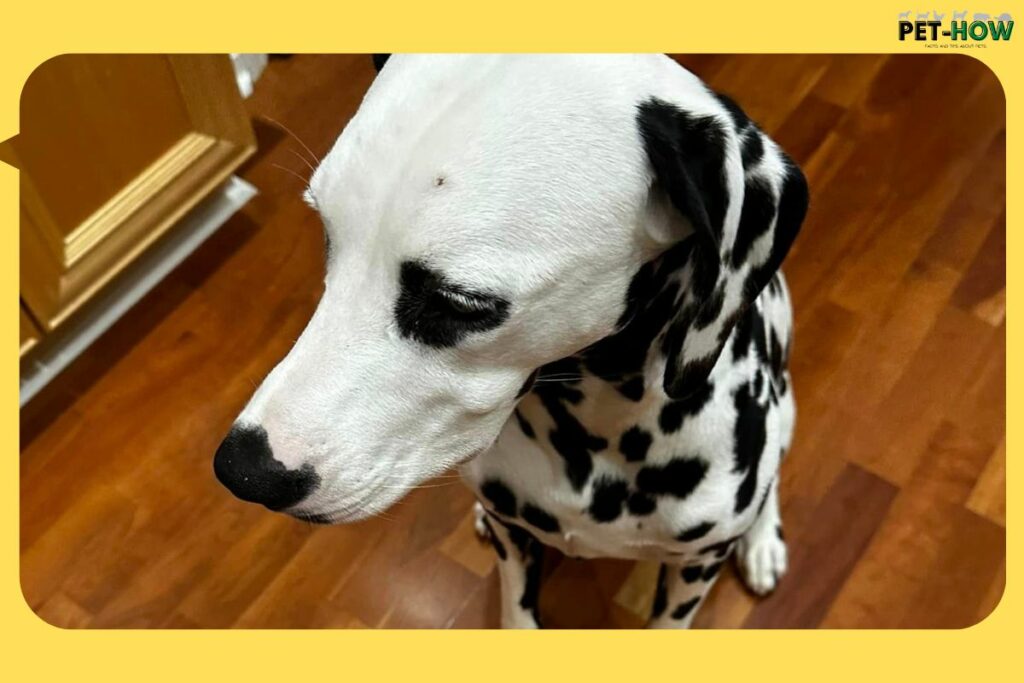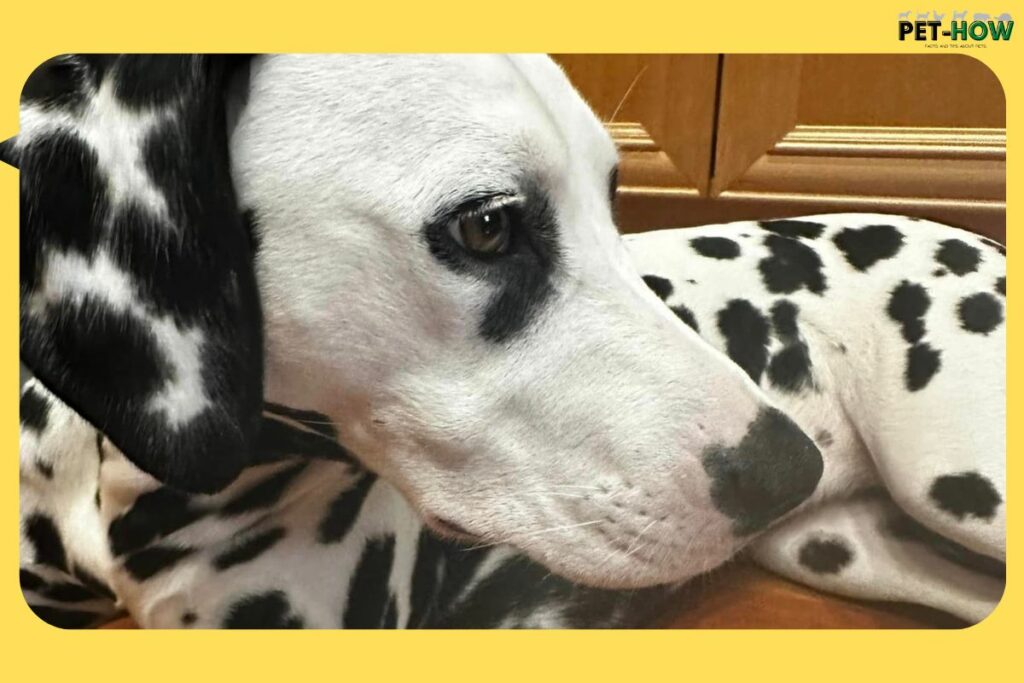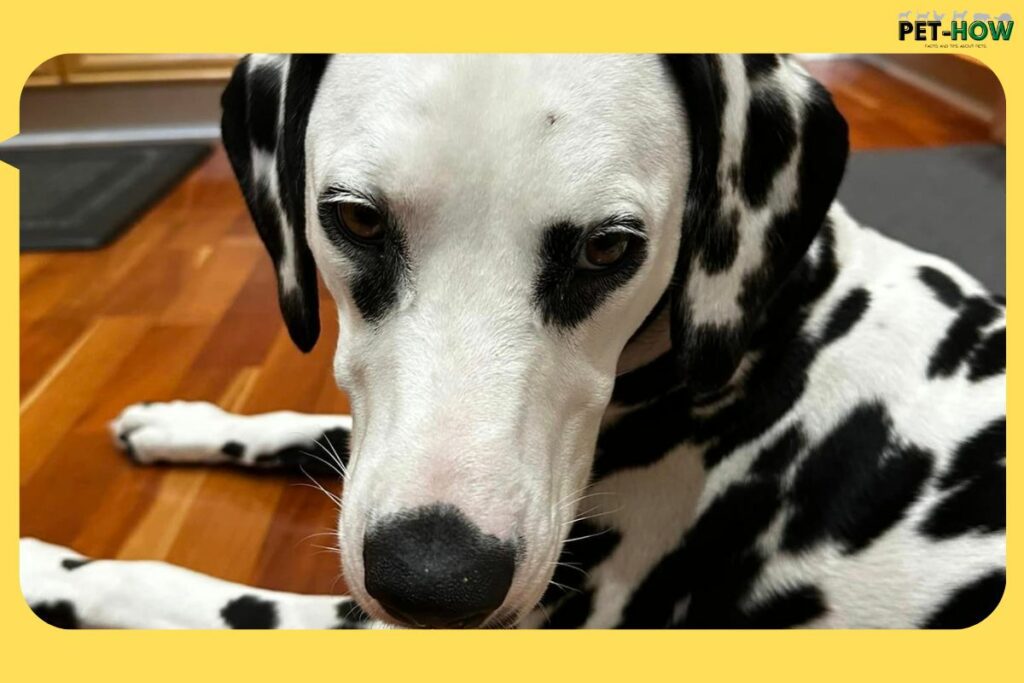If your dog is experiencing swollen lymph nodes, there are several effective home remedies that can help alleviate the condition and support their overall well-being.
Swollen lymph nodes in dogs can be caused by various health conditions, including lymphoma, lymphadenopathy, lymphadenitis, and lymphedema.
While medical diagnosis and treatment are necessary for these conditions, there are home remedies that can help improve lymph circulation in dogs.
- Key Takeaways:
- Understanding Swollen Lymph Nodes in Dogs
- Diagnosing Swollen Lymph Nodes in Dogs
- Home Remedies to Improve Lymph Circulation in Dogs
- Medicinal Herbs and Supplements for Swollen Lymph Nodes in Dogs
- Recognizing the Symptoms of Swollen Lymph Nodes in Dogs
- When to Seek Veterinary Care for Swollen Lymph Nodes in Dogs
- Supporting Your Dog’s Overall Health
- Conclusion and final thoughts
- Source Links
Key Takeaways:
- Swollen lymph nodes in dogs can be caused by various health conditions.
- Home remedies include exercise, dry skin brushing, lymphatic massage, acupuncture, acupressure, red light therapy, improving the diet, hydration, and the use of medicinal herbs and supplements such as omega-3 fatty acids, medicinal mushrooms, antioxidants, resveratrol, hemp extract, and curcumin.
- Medicinal herbs and supplements like omega-3 fatty acids and curcumin can support dogs with swollen lymph nodes.
- Regularly palpate your dog’s lymph nodes and consult a veterinarian if there are any concerns.
What Are Swollen Lymph Nodes in Dogs

Swollen lymph nodes in dogs can occur due to various health conditions, and it’s essential to understand the underlying causes to provide the appropriate care for your furry friend.
Lymph nodes are small, bean-shaped glands that play a vital role in the lymphatic system, which helps the body fight infections and diseases.
When these nodes become enlarged, it can indicate an underlying issue that requires attention.
Home Remedies for Dog’s Swollen Lymph Nodes
| Home Remedies | Description |
|---|---|
| Herbal Treatments | Herbal treatments such as Calendula tea, Violet (Viola odorata), Chickweed (Stellaria media), and Cleavers (Gallium aparine) can potentially support lymphatic health and improve lymph circulation. However, it’s crucial to consult with a vet before starting any herbal regimen. |
| Quality Fish Oil Supplements | High-quality fish oil supplements like Amazing Omegas can boost a dog’s overall health and immunity. The Omega-3 fatty acids in these supplements support cell function and reduce inflammation, possibly benefiting dogs with swollen lymph nodes. |
| Dietary Adjustments | Feeding your dog a balanced, nutritious diet can boost their immune system and help their body fight off infections or diseases. High-quality, protein-rich foods are recommended, while processed options should be avoided. |
| Regular Exercise | Regular physical activities like walking or playing fetch can significantly boost a dog’s immune system and promote better circulation, including within the lymphatic system. |
| Dry Skin Brushing | Dry skin brushing is a technique that can potentially stimulate lymph flow and remove dead skin cells. It involves gently stroking your dog’s skin in the direction of their heart using a soft-bristle brush. |
| Lymphatic Massage | Lymphatic massage might help stimulate your dog’s lymphatic system, aiding in the removal of waste and toxins. It is advised to seek the assistance of a professional trained in canine massage for this process. |
| Acupuncture and Acupressure | Acupuncture and acupressure are traditional Chinese medicine techniques that could potentially support overall health and well-being in dogs, including the health of the lymphatic system. These treatments should always be performed by a certified practitioner. |
| Red Light Therapy | Red light therapy uses low-level light therapy to stimulate cellular function, potentially reducing inflammation and promoting healing in dogs with swollen lymph nodes. It’s essential to understand that this doesn’t replace conventional veterinary treatment. |
Home remedies for a dog’s swollen lymph nodes can range from herbal treatments to dietary changes, but it’s crucial to remember that these should always be used in conjunction with professional veterinary care.
Herbal Treatments
As a veterinarian, I’ve seen some pet owners use herbal treatments to support their dogs’ lymphatic health. Calendula tea or tincture is one such option that some believe may help improve lymph circulation.
Similarly, herbs like Violet (Viola odorata), Chickweed (Stellaria media), and Cleavers (Gallium aparine) are often suggested to boost the lymphatic system. However, it’s important to consult with a vet before starting any herbal regimen, as not all herbs are safe for all dogs and could potentially interfere with other treatments.
Quality Fish Oil Supplements
Some dog owners have found success in boosting their dog’s overall health and immunity by adding high-quality fish oil supplements to their diet.
Omega-3 fatty acids in these supplements can support cell function and reduce inflammation, which may indirectly benefit dogs with swollen lymph nodes. I often recommend Amazing Omegas, which is a high-quality purified fish oil designed for pets.
Dietary Adjustments
Adjusting your dog’s diet can sometimes aid in their overall health and recovery. Feeding your dog a balanced, nutritious diet can boost their immune system and help their body fight off infections or diseases that might cause swollen lymph nodes. As a vet, I encourage owners to feed their pets high-quality, protein-rich foods and avoid processed options whenever possible.
Additional home remedies for a dog’s swollen lymph nodes include regular exercise, dry skin brushing, lymphatic massage, acupuncture, acupressure, and red light therapy, all of which may support overall health and lymphatic function when used appropriately and under veterinary supervision.
Regular Exercise
From my experience as a veterinarian, I’ve found that regular exercise can significantly boost a dog’s immune system and promote better circulation, including within the lymphatic system. Simple activities like walking or playing fetch can be beneficial.
Dry Skin Brushing
While not as common in pets, dry skin brushing is a technique that some pet owners use to potentially stimulate lymph flow and remove dead skin cells. Using a soft-bristle brush, you’d gently stroke your dog’s skin in the direction of their heart. However, it’s crucial to ensure this process is comfortable and not causing any stress to your dog.
Lymphatic Massage
Lymphatic massage might help stimulate your dog’s lymphatic system, aiding in the removal of waste and toxins. As a veterinarian, I would advise seeking the assistance of a professional trained in canine massage to ensure this is done correctly and safely.
Acupuncture and Acupressure
Acupuncture and acupressure are traditional Chinese medicine techniques that could potentially support overall health and well-being in dogs, including the health of the lymphatic system. These should always be performed by a certified practitioner to ensure safety and effectiveness.
Red Light Therapy
Red light therapy is a treatment that some believe can reduce inflammation and promote healing, which could potentially benefit dogs with swollen lymph nodes. It uses low-level light therapy to stimulate cellular function. I’ve seen some positive results in my practice, but it’s essential to understand that this doesn’t replace conventional veterinary treatment.
Diagnosing Swollen Lymph Nodes in Dogs

| Diagnostic Tests | Description |
|---|---|
| Physical Examination | Palpation of lymph nodes to check for abnormalities in size, texture, and tenderness. |
| X-rays | Imaging technique to visualize the lymph nodes and surrounding structures. |
| Blood Tests | Analyzing the blood for any abnormalities or signs of infection or disease. |
| Ultrasound | Using sound waves to create images of the lymph nodes and surrounding tissues. |
| Biopsy | Removing a small sample of tissue from the lymph node for further examination. |
To accurately diagnose the cause of your dog’s swollen lymph nodes, a veterinarian will conduct a thorough physical examination and may require additional diagnostic tests.
During the physical examination, the vet will carefully palpate your dog’s lymph nodes to check for any abnormalities such as size, texture, and tenderness. This can provide valuable information about the underlying cause of the swelling.
In some cases, the veterinarian may need to perform diagnostic tests such as X-rays to get a better view of the lymph nodes and surrounding areas.
X-rays can help identify any abnormalities or enlarged lymph nodes that may be indicative of a more serious condition. Additionally, other clinical signs such as blood tests, ultrasound, or even a biopsy may be necessary to determine the cause of the swollen lymph nodes.
To accurately diagnose the cause of your dog’s swollen lymph nodes, a veterinarian will conduct a thorough physical examination and may require additional diagnostic tests.
If your dog is exhibiting symptoms such as lack of appetite, weakness, lethargy, or weight loss along with swollen lymph nodes, these clinical signs can further guide the diagnostic process. It’s important to communicate all symptoms to the veterinarian to assist in determining the most appropriate treatment plan.
Medicinal Herbs and Supplements for Swollen Lymph Nodes in Dogs
| Medicinal Herbs and Supplements | Benefits |
|---|---|
| Omega-3 fatty acids | Reduce inflammation and regulate the immune system |
| Medicinal mushrooms | Boost the immune system and reduce inflammation |
| Antioxidants | Reduce oxidative stress and support overall health |
| Resveratrol | Provides antioxidant and anti-inflammatory properties |
| Hemp extract | Helps with pain relief and reduces inflammation |
| Curcumin | Has anti-inflammatory and immune-boosting effects |
Certain medicinal herbs and supplements can be beneficial in supporting dogs with swollen lymph nodes and improving their overall well-being.
These natural remedies can help with lymph circulation, reduce inflammation, and boost the immune system.
When used in conjunction with proper veterinary care, they can provide additional support for your furry friend’s health.
Omega-3 fatty acids are an excellent supplement to consider. They have anti-inflammatory properties and help regulate the immune system. You can find omega-3 fatty acids in fish oil or algae-based supplements. Adding this to your dog’s diet can help reduce swelling and support their lymphatic system.
Medicinal mushrooms such as reishi, shiitake, and maitake are also beneficial for dogs with swollen lymph nodes. These mushrooms have immune-boosting properties and can help reduce inflammation.
They are available in supplement form and can be given according to the recommended dosage for your dog’s weight.
Antioxidants play a crucial role in reducing oxidative stress and supporting overall health. Vitamins C and E, as well as coenzyme Q10, are powerful antioxidants that can be beneficial for dogs with swollen lymph nodes.
Look for high-quality supplements specifically formulated for dogs, and consult with your veterinarian for proper dosing says WholeDogJournal.
How To Prevent Swollen Lymph Nodes in Dogs

Preventing swollen lymph nodes in dogs involves maintaining their overall health through a balanced diet, regular exercise, and routine veterinary care, along with specific treatments for underlying causes such as infections or cancer.
Regular Veterinary Care
In my years as a vet, I’ve found that regular veterinary check-ups are crucial in preventing health issues, including swollen lymph nodes in dogs. These check-ups allow for early detection of potential problems, including infections or cancer, which can lead to swollen lymph nodes. Early treatment of these conditions can prevent lymph nodes from swelling.
Balanced Diet
Feeding your dog a balanced, nutritious diet is key to maintaining their overall health and preventing health issues. A healthy diet boosts the immune system, helping to prevent infections that can cause swollen lymph nodes. Avoid processed foods and opt for high-quality, protein-rich foods instead.
Regular Exercise
Regular physical activity can significantly enhance a dog’s immune system and promote better circulation, including within the lymphatic system. Simple activities like walking or playing fetch can be beneficial.
Timely Treatment of Infections
If the swollen lymph nodes are due to an infection, treating the infection promptly with antibiotics or antifungal medication can help prevent the lymph nodes from swelling. As a vet, I would prescribe the appropriate medication based on the type of infection.
Cancer Treatment
In some cases, swollen lymph nodes may be due to cancer. In such cases, treatment options like surgery, chemotherapy, or other ongoing treatments can help manage the condition and prevent further swelling of the lymph nodes.
Lymphatic Health Support
Techniques such as dry skin brushing, lymphatic massage, acupuncture, acupressure, and red light therapy can support overall health and lymphatic function. However, these should always be performed under professional guidance to ensure safety and effectiveness.
When to Seek Veterinary Care for Swollen Lymph Nodes in Dogs

| Signs to Look for: | When to Seek Veterinary Care: |
|---|---|
| Lack of appetite | If the lack of appetite persists for more than 24 hours or is accompanied by other symptoms |
| Weakness and lethargy | If weakness and lethargy are severe or prolonged |
| Weight loss | If there is a noticeable and unexplained weight loss |
| Enlarged lymph nodes | If the lymph nodes are visibly swollen or if the swelling persists for more than a week |
If you notice your dog’s lymph nodes are enlarged or they are exhibiting symptoms such as lack of appetite, weakness, lethargy, or weight loss, it is crucial to seek veterinary care promptly. These signs may indicate an underlying health condition and a professional diagnosis is essential for proper treatment.
Enlarged lymph nodes can be a result of various factors, including infections, inflammation, or even cancer. By consulting a veterinarian, you can ensure that the cause of the swelling is accurately identified.
They will conduct a thorough physical examination, checking for other associated symptoms and possibly recommending additional diagnostic tests such as x-rays or blood work.
Your veterinarian’s expertise and experience are invaluable in determining the appropriate course of treatment. They may prescribe medications, and antibiotics, or suggest surgical intervention if necessary. Moreover, they can provide guidance on managing your dog’s overall health, such as recommending dietary changes or lifestyle modifications to support their recovery says ToeGrips.
FAQs
Q: What are the causes of swollen lymph nodes in dogs?
A: Swollen lymph nodes in dogs can be caused by various factors, including infections, inflammation, immune system disorders, and even cancer such as lymphoma.
Q: How can I identify if my dog has swollen lymph nodes?
A: Swollen lymph nodes in dogs can be felt as lumps under the skin. Common areas to check for swollen lymph nodes include the neck, armpits, groin, and behind the knees. If you notice any abnormal lumps or bumps, it’s best to have your dog checked by a veterinarian.
Q: What are the symptoms of swollen lymph nodes in dogs?
A: Symptoms may include lumps or swelling in the affected area, pain or discomfort, loss of appetite, lethargy, fever, and changes in behavior. However, it’s important to note that swollen lymph nodes can also be present without any noticeable symptoms.
Q: How can I treat swollen lymph nodes in dogs at home?
A: There are several home remedies that can help reduce swelling and promote healing. These remedies include warm compresses, gentle massage, and the use of natural remedies such as apple cider vinegar or chamomile tea. However, it’s important to consult with a veterinarian before attempting any home treatments.
Q: Can antibiotics help treat swollen lymph nodes in dogs?
A: Antibiotics may be prescribed by a veterinarian to treat underlying infections that may be causing the swelling. However, antibiotics alone may not be sufficient, and additional treatment options may be recommended.
Q: What are the treatment options for swollen lymph nodes in dogs?
A: Treatment options for swollen lymph nodes in dogs may vary depending on the underlying cause. In addition to antibiotics, other treatment options may include anti-inflammatory medications, chemotherapy for lymphoma cases, and supportive care to manage symptoms.
Q: Should I see a veterinarian if my dog has swollen lymph nodes?
A: Yes, it is recommended to consult with a veterinarian if you notice swollen lymph nodes in your dog. They can evaluate the extent of the swelling, perform necessary tests to determine the cause, and provide appropriate treatment options.
Q: Can swollen lymph nodes in dogs be a sign of cancer?
A: Yes, swollen lymph nodes in dogs can sometimes be a sign of cancer such as lymphoma. However, it’s important to note that not all cases of swollen lymph nodes are cancerous. A veterinarian can perform further tests to diagnose the underlying cause.
Q: Can swollen lymph nodes in dogs go away on their own?
A: Swollen lymph nodes in dogs may go away on their own if the underlying cause is minor, such as a mild infection. However, it’s important to monitor the condition and consult with a veterinarian for proper evaluation and treatment.
Conclusion and final thoughts
By utilizing effective home remedies alongside veterinary guidance, you can provide your dog with the necessary support in managing swollen lymph nodes and improving their quality of life.
Swollen lymph nodes in dogs can be caused by various health conditions, including lymphoma, lymphadenopathy, lymphadenitis, and lymphedema. While medical diagnosis and treatment are necessary for these conditions, there are home remedies that can help improve lymph circulation in dogs.
One of the key aspects of managing swollen lymph nodes is promoting lymphatic flow. Regular exercise, such as brisk walks or gentle play sessions, can help stimulate circulation and reduce inflammation.
Dry skin brushing, lymphatic massage, acupuncture, and acupressure are also effective techniques to enhance lymphatic flow and support the body’s natural healing process.





Leave a Reply